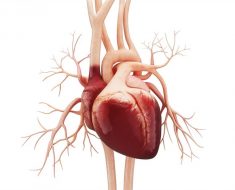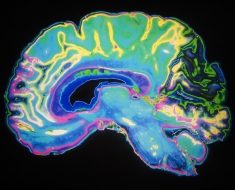
- Menstrual issues, such as period pain, are experienced by up to 91% of women at some time in their lives.
- Another condition that can affect menstruation is polycystic ovary syndrome (PCOS), which can impact up to 20% of women, causing problems with the menstrual cycle and a range of other symptoms.
- New research has highlighted that both conditions may have health effects that are seemingly unconnected to the reproductive system.
- Two preliminary studies suggest that dysmenorrhea and PCOS could increase the risk of cardiovascular disease in some women.
For some people, menstruation is a minor inconvenience, but for others it comes with side effects and a range of health issues.
The most common effect is period pain (dysmenorrhea), which, according to a wide-ranging review, affects up to 91% of women of reproductive age. This can range from mild discomfort to severe pain that affects daily functioning in between 2% and 29% of women.
Another common reproductive health condition is polycystic ovary syndrome (PCOS), where small fluid-filled sacs develop on the ovaries. The prevalence of this condition is less clear, as it has a broad spectrum of symptoms, but experts believe it affects between 4% and 21% of women.
Now, two preliminary studies, not yet published in peer-reviewed journals, which were presented at the
Dr. Nicole Weinberg, board-certified cardiologist at Providence Saint John’s Health Center in Santa Monica, CA, not involved in this research, commented for Medical News Today:
“We’ve always known that there are hormone changes that link our female patients with cardiovascular processes, but generally, the focus has always been in the later years, in the menopausal years, so I think looking earlier in a woman’s menstrual history is very elucidating as it relates to teasing through the risk factors for disease.”
Period pain and increased CVD risk
The first study investigated whether there was a connection between dysmenorrhea and
The researchers used electronic health records to assess more than 55,000 women aged under 50 years, of whom just over 30,000 had received a dysmenorrhea diagnosis. They looked at the diagnosis of heart disease overall and of specific types of heart disease.
Following statistical analysis, they found that dysmenorrhea was likely to be a risk factor for early IHD, particularly for angina — a feeling of pain, squeezing or pressure in the chest — and
Their main findings were that women with dysmenorrhea were:
- twice as likely as those without the condition to have IHD, characterized by chest pain and discomfort
- more than three times as likely to experience angina
- twice as likely to have chronic or long-term IHD.
Lead author Dr. Eugenia Alleva, postdoctoral research fellow at the Windreich Department of Artificial Intelligence and Human Health, Hasso Plattner Institute for Digital Health at Mount Sinai, New York, told MNT: “We add to previous literature on menstruation-related cardiovascular risk factors, such as irregular menstrual cycles, showing that menstruation has the potential to be informative for general health, and in particular help assess cardiovascular risk.”
“This suggests that gynecologists have the opportunity to help screen for and coordinate primary preventive measures for disorders beyond reproductive health,” she added.
However, the researchers caution that this was a cross-sectional study, so it cannot determine whether there is a chronological link between dysmenorrhea and CVD.
Linking PCOS, hypertension, and CVD risk
In the second study, researchers looked at health data for 170,000 teenage girls between 2012 and 2018. For each of the teenage girls, researchers noted the blood pressure, height, and weight taken at one initial well-child visit, and any PCOS diagnoses within a year of those visits.
The majority (66%) of all the girls had a healthy weight, almost 19% were overweight, and more than 15% had obesity. In total, 1,140 of the girls had PCOS.
Blood pressure readings, taken at the initial well-child visit, showed that around three-quarters of the girls had blood pressure in the healthy range (120/80 or lower).
Of the rest, 17.5% had elevated blood pressure (121-129/80), 6% had stage 1 hypertension (130-139/80-89), and less than 1% had blood pressure higher than 140/90.
Of the girls with PCOS, 18.6% had high blood pressure, compared with only 6.9% of those without PCOS.
After adjusting for age, race/ethnicity, and body mass index (BMI), the researchers found the prevalence of high blood pressure was 30% higher in girls with PCOS.
Lead study author Dr. Sherry Zhang, a resident physician in internal medicine at Kaiser Permanente Oakland Medical Center in Oakland, CA, noted in a press release that “[s]tudying adolescents will allow us to better identify possible cardiometabolic complications of polycystic ovary syndrome that may develop at a young age in hopes of reducing future cardiovascular risk.”
“These findings emphasize the importance of routine blood pressure monitoring and lifestyle modification in at-risk adolescents, including those with polycystic ovary syndrome, to prevent the development of hypertension,” she added.
Moving forward on women’s heart health
Reflecting on the potential mechanisms at play, Dr. Alleva told us:
“Our running hypothesis is that a combination of increased stress susceptibility, autonomic nervous system changes and increase in inflammatory mediators — all of which are processes related to dysmenorrhea — might explain our finding. However, we are only starting to scrape the surface, and more research is needed.”
Most research into women’s heart health focuses, as Dr. Weinberg told MNT, on older women. These studies look at reproductive health issues and cardiac health in a much younger cohort — teenagers and women of reproductive age.
Dr. Weinberg welcomed the way in which the studies are helping to move forward research into women’s cardiovascular health.
“A lot of what the research is assessing is how the hormones have interplay with your vascular health. We’ve known for a number of years that there are certain disease processes where there are spasms in the arteries and/or plaque ruptures associated with different changes in hormone levels,” she told us.
“But I think we’re really starting to tease through the details of what those levels are, what the hormones are, how we navigate these processes within a woman’s body,” added Dr. Weinberg.
Dr. Alleva cautioned that theirs is early work. “We still need to confirm the findings further and have a long but exciting way ahead of us!” she emphasized.
Source: Read Full Article





